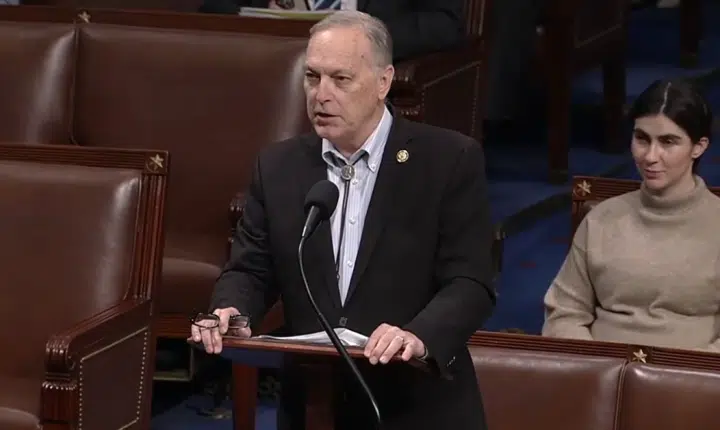By Natalia Castro
Nothing brings the American people together quite like honoring our veterans, and the same is true for Congress. Despite a polarizing political climate, Republicans and Democrats have consistently come together to put the care of our veterans first.
While this trend on the surface appears to be continuing with proposed legislation in the House of Representatives to expand disability compensations to “blue water” Vietnam War veterans. But after years of failure to pass this legislation, politicians must show their support for veterans not just in rhetoric but in real action.
The Agent Orange Act of 1991 presumed that certain veterans from the Vietnam War were exposed to the substance and allowed them to obtain disability compensation without having to prove they were actually exposed to the substance. This was done due to the widespread use and health ramification of the herbicide.
The Congressional Research Service explained in November 2014, “The Department of Veteran Affairs (VA) reinterpreted the statutory language in 2002 to include only veterans who have actually set foot on the landmass of Vietnam or served in the inland waterways of Vietnam (veterans who served in the inland waterways are generally known as “brown water” veterans). Veterans who served on ships that remained off the coast of Vietnam (generally referred to as “blue water” veterans) do not satisfy the test and are not considered to be presumptively exposed to Agent Orange.”
More than 20 million gallons of the herbicide were sprayed during the Vietnam War to reduce foliage to make it easier to spot enemy troops. Navy veterans of the war argue that the Agent Orange then washed into rivers and out to sea where ships sucked in the water for use in showering, cooking, and cleaning.
The VA requested the Health and Medicine Division of the National Academy of Science, Engineering, and Medicine to review medical and scientific evidence regarding blue water veteran’s exposure to Agent Orange. In a May 2011 report, the group concluded “the committee was unable to state with certainty whether Blue Water Navy personnel were or were not exposed to Agent Orange”; however, the group found “several plausible ways by which Blue Water Navy veterans could have been exposed,” causing the VA to determine disability coverage on a case-by-case basis based on proof of contact with the chemical rather than the presumption of contact.
This puts many potentially ill veterans in an impossible position.
Leo Shane III of Military Times explains, given the decades which have passed since the Vietnam War and the lack of focus on “blue water vets,” collecting scientific evidence of the presence of Agent Orange on or near ships is extremely difficult. As a result, many blue water veterans who experience symptoms of Agent Orange exposure are unable to receive adequate disability accommodations.
On the surface, members of the House and Senate seem to agree that these veterans deserve equal access to disability care. H.R. 299 or the Blue Water Navy Vietnam Veterans Act of 2017 currently has 330 cosponsors in the House from and identical legislation in the Senate has 50 cosponsors, both have received bipartisan praise.
Passage of this legislation would cost $1.1 billion over the next ten years according to the Congressional Budget Office and could expand benefits to as many as 90,000 veterans. The pay-for comes in the form of additional charges to VA home mortgages. Some members have cited objections on those grounds, but if that’s the case and they believe this legislation is that important, perhaps they should include offsetting spending cuts from somewhere in the budget instead.
Theoretically, this bill should be an easy bipartisan pass and promptly signed into law, but this is a situation these veterans are all too used to.
The Blue Water Navy Vietnam Veterans Act of 2013 had 258 cosponsors in the House and Blue Water Navy Vietnam Veterans Act of 2015 had 335 cosponsors in the House. Seemingly in each new Congress, the legislation is introduced, only to have a rush of cosponsors and no real action taken. A cynic might suggest that all these cosponsors are done simply for show because they know they bill has no chance of passing.
In the meantime, all these members of Congress are on the record saying that tens of thousands of “blue water” Navy veterans deserve the presumption of exposure to Agent Orange when it comes to qualifying for benefits. They are affirmatively telling their constituents they may in fact have been exposed, and through their repeated inactions, that they will most probably not be doing a thing about it. It is so cynical as to be beyond belief. It’s cruel.
The failure of Congress to act on this issue has left these Vietnam War veterans feeling abandoned by the government and the country they protected — and they have no real good answer as to why.
Mike Little, national executive director of the Blue Water Navy Vietnam Veterans Association told the Military Times on May 4, “While it’s been rumored we are going to get this legislation passed in a Memorial Day package, we have been told before we were close to victory, only to have our legislation held up as a political pawn. This kills the spirits of my members. This time, we have tried the best we can to make sure we have all the facts before we go let them down again.”
Little had reason to be cautious in the fate of the bill. The legislation did successfully move out of Committee this month, but as Memorial Day came and went without a vote, this appears to be another year of false promises. About 400 Vietnam War veterans are dying every day. Where’s the urgency?
Almost every politician will act as though they are in full support of our veterans, but until these critical pieces of legislation are brought forward nobody should believe the rhetoric of members of Congress. This is a bill with overwhelming bipartisan support that almost nobody expects to even come up for a vote. If they don’t want to make changes to the VA home loan program, then they should use offsetting spending cuts instead. Just stop misleading these vets that something’s going to happen that might not.
For many Vietnam War veterans, the end of the war did not mark the end of their battle. Now, the vast majority of members of Congress are going around telling “blue water” Navy vets they were exposed to harmful herbicides, for years saying they support legislation that will help them, and then are doing almost nothing to enact it. Congress should pass legislation H.R. 299, which the vast majority of members say supports their needs, and prove the cynics wrong.
Natalia Castro is a contributing editor at Americans for Limited Government.







